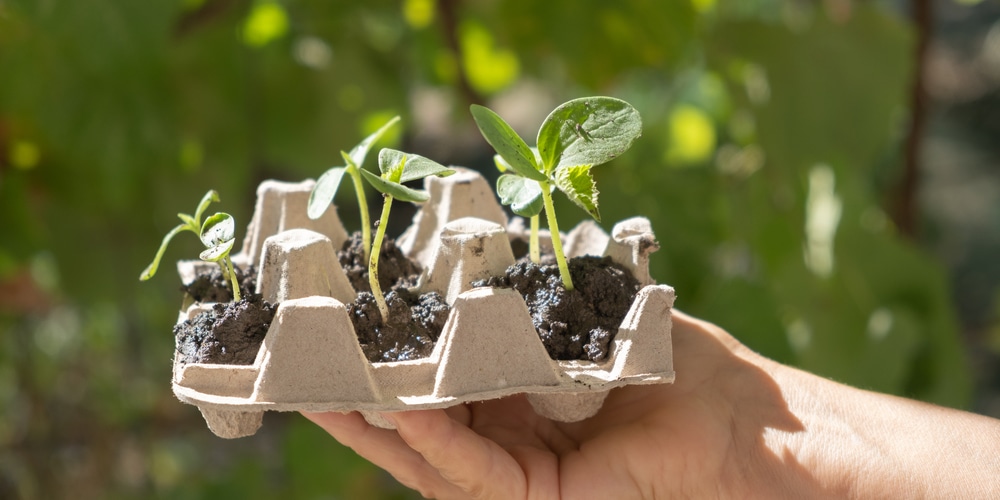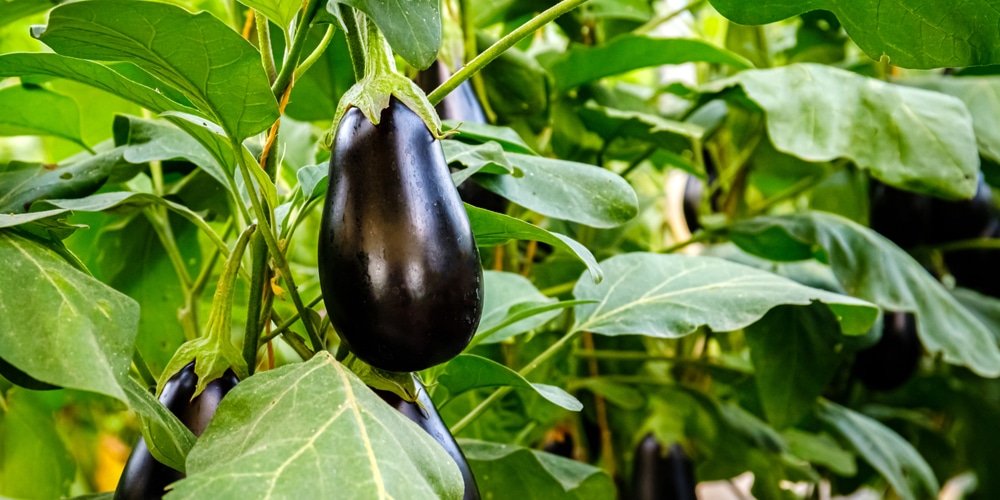When you are growing eggplants, it is crucial to understand the different stages of growth. This will help you to provide the best care for your eggplants and ensure that they reach their full potential. As a summer vegetable, eggplants are a warm-weather crop that belongs to the nightshade family.
Eggplants can be eaten in many different dishes and are a good source of dietary fiber, potassium, and vitamin B6. This blog post will discuss the different stages of eggplant growth and what you can do to help your plants thrive.
Eggplant Growing Stages
There are many different types of eggplants, and they come in various shapes and sizes. The most popular type is the teardrop shape, but there are also slender and bulbous types. When it comes to colors, they can be white, green, yellow, black, or dark purple. As with all vegetables, when growing eggplants, there are specific things you need to know to get the best results. The growth stage of eggplant are seeds, seedling, transplant, flowering, fruiting stage, and harvesting.
Seeds
You first start the eggplant growing process by planting seeds. Eggplants require a warm and sunny climate to grow and can be challenging for seedlings to survive in cold weather. To help your young plants get off to a good start, you will need to wait until after all danger of frost has passed. You should plant your seeds around two weeks after the last frost date. To avoid frost, you can start your plant off indoors in the early spring.
Seedlings
The first stage of growth is the seedling stage; this is where the seeds have germinated, and a small shoot has started to grow. The new seedling needs to be cared for carefully.
It is important not to overwater your plants when growing eggplants as they can be susceptible to fungal growth that causes root rot in moist conditions. Once your plant has sprouted its first set of leaves, you should stop fertilizing the plant until further notice. Instead, focus your energy on providing the plant with plenty of sunlight and keeping your seedling warm.
Eggplant Growing Stages: Transplanting
After about six weeks, you will transplant your seedlings into larger pots or your vegetable plot to give them more space. It would help if you used 8-inch or larger pots for eggplants to provide them with adequate drainage and room for growth. The next step is to gradually expose the seedlings to outdoor conditions over the next two weeks. This will help to harden them up for growing outdoors.
Flowering Stage
After about 8 to 10 weeks, your eggplants should be ready to flower and set fruit. You can tell that your plant is flowering when it starts producing tiny flowers on the plant’s stem. If you want your plants to produce more fruit, then it is essential that you remove the male flowers and just leave the female ones.
Eggplant Growing Stages: Fruiting Stage
When growing eggplants, the fruiting stage comes after flowering. You can tell that your plant is in its fruiting stage when miniature fruit starts appearing on the plant’s stem. Your plants will continue to produce more fruit until they reach their maximum size, which is about 4 inches in diameter.
Harvesting and Storage
Now that it’s time for harvest, we can say that your eggplants development process is complete, and you should be able to enjoy some tasty dishes made with this wonderful summer vegetable.
Eggplant is a warm-weather vegetable, so you should only harvest the eggplants when they are mature and firm. You can tell that eggplants are ready for harvest because they will have a glossy shine to them, and their skin will be shiny and smooth. If you try harvesting your eggplants before they ripen, then you will only end up stunting the plant’s growth. You should be able to harvest 1 or 2 eggplants every week during its fruiting stage.
If you want to store your uneaten eggplant for later, then leave them out at room temperature and allow them to ripen first before putting them into the refrigerator. Storing your uneaten eggplants in the fridge for too long can cause them to become bitter and mushy.
Conclusion
When growing eggplant, you need to know how to care for them properly during each growth stage so that you can have a bountiful harvest at harvest time. Now go ahead and try your hand at growing some eggplants this summer!

